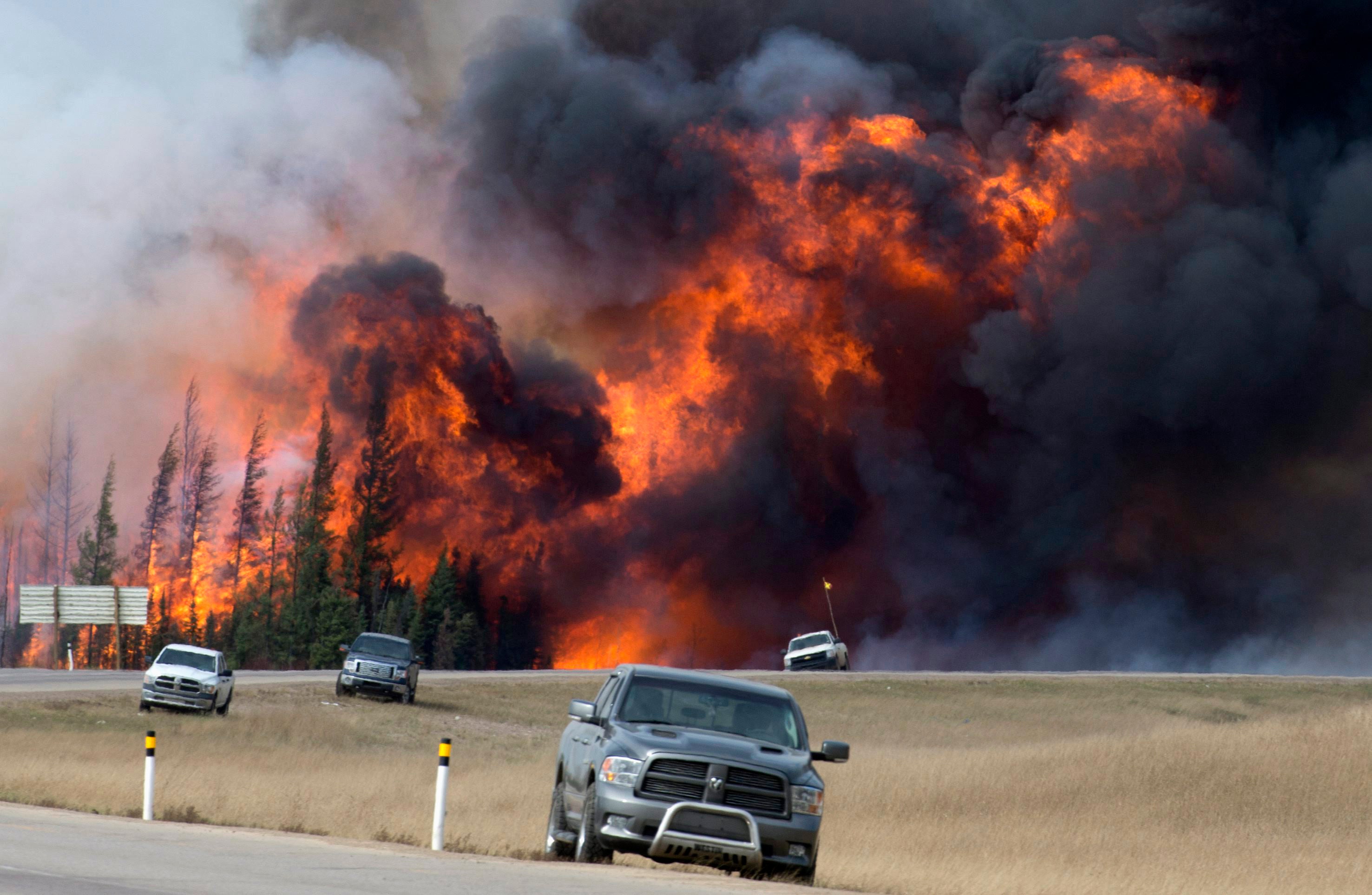Sunak is putting Tory populism before the climate crisis. It’s shameful
Just two years ago, Rishi Sunak laid out plans to transform the UK into a green financial hub to combat climate change. This week, his government quietly dropped the climate from its list of key priorities. Kowtowing to Tory populism as the world gets hotter is shocking, says Chris Blackhurst


Reading Fire Weather by John Vaillant is a deeply troubling experience.
The book, which deservedly won this year’s Baillie Gifford non-fiction prize, details the outbreak of a wildfire in Fort McMurray, Alberta in May 2016. In just one afternoon, entire neighbourhoods were destroyed and the conflagration drove 90,000 people from their homes.
Having emerged from a summer in which large parts of the world were similarly ravaged by fire, the horror of its destructive power is terrifyingly laid bare. As the world gets hotter, we can expect many more infernos like the one that Vaillant so vividly describes.
It’s troubling then to learn that our government gives every impression of no longer caring about climate change – not to the degree it did in the recent past. We’ve had Rishi Sunak’s reversal on extracting oil and gas from the North Sea and the awarding of new fossil fuel licences, coupled with the dilution of some net-zero policies. Then our prime minister was noticeably absent from the United Nations General Assembly when the heating planet was top of the agenda.
Now comes the completion of the hat-trick, three strikes of shame, with the removal of climate change from the list of four key priorities chancellor Jeremy Hunt expects the Bank of England’s Financial Policy Committee (FPC) to consider in the coming year. Accompanying his autumn statement, Hunt told the Bank governor, Andrew Bailey, that the quartet should be growth and competitiveness, competition and innovation, home ownership, and boosting productive finance.
Even allowing for a looming general election and ministers’ desire to be seen to promote what they consider to be vote-winning strategies, this is shocking. The Cop climate talks are about to begin in Dubai and here is the UK government effectively downgrading what is undoubtedly the biggest problem facing mankind – and all because they want to be seen to be promoting economic growth above other topics.
Each year, the chancellor writes the so-called “remit letter” to the governor. It’s a framework, an aide-mémoire, for the Bank’s next 12 months. Last time, Hunt’s four priorities were climate change and energy security, international, competition and home ownership. This year, climate change is not in the four. “Climate” is referred to elsewhere in his letter, as relevant to the FPC’s “primary objective” but that is all.
So, not a standalone subject in other words, not something worthy of being tackled head-on, but as an adjunct to more important aims.
It was only two years ago that Sunak laid out plans to transform the country into a green financial hub, sourcing investments and loans to combat climate change and other environmental concerns. The move runs counter, too, to warnings from Bailey and his predecessor Mark Carney that climate change presents a calamitous danger to the markets, eradicating properties and infrastructure and livelihoods, running up bills into the trillions. Seemingly, achieving growth is more vital.
What’s telling, also, is the letter’s repetition. I don’t know about you but I can’t tell the difference between “growth and competitiveness”, “competition and innovation” and “boosting productive finance”. Surely, they all amount to pretty much the same thing.
It’s perhaps significant, too, that this is a list that could have been written by Liz Truss’s chancellor, Kwasi Kwarteng. Under Truss, “growth” was the mantra. It appealed to the Tory members at large who elected her. An election is coming and Sunak and Hunt are again putting Tory populism before national necessity.
A senior adviser to the Conservatives once said to me that as well-intentioned as concerns about the environment were, they did not win. “No one votes for the Greens.” That was not strictly true. The party had made inroads, they had an MP Caroline Lucas, and hundreds of local councillors. In other countries, the Greens represented an electoral force to be reckoned with.
Nevertheless, it pointed to a mindset, one that determined what exactly would be trumpeted to persuade folk to vote Tory. You can join growth and climate change together – Boris Johnson did. When he was prime minister, Johnson unveiled, amid great fanfare, his “10-point plan” to achieve Britain’s “green industrial revolution”. It was about leading the world in renewable energy, building world turbines, manufacturing electric vehicles, and making homes more energy-efficient.
Today it is not mentioned. To do so is to resurrect a memory of a different, discredited regime. Rather like “levelling up” it’s consigned to the dustbin of abandoned policies and imperatives. Not only is this no way to run the country, repeatedly flip-flopping and U-turning, but it is grossly irresponsible. Yes, the Conservatives are well within their rights to try and grab as many crosses on the ballot paper as they can. Equally, though, they owe a duty of care.
Climate change is not to be ignored, it should be high on the “to-do” list of every government around the globe. In their election gaming, the Tories are literally playing with fire. If they disagree, they should study Vaillant’s book, whose full title is Fire Weather: A True Story from a Hotter World. It might just make them reconsider.






Join our commenting forum
Join thought-provoking conversations, follow other Independent readers and see their replies
Comments